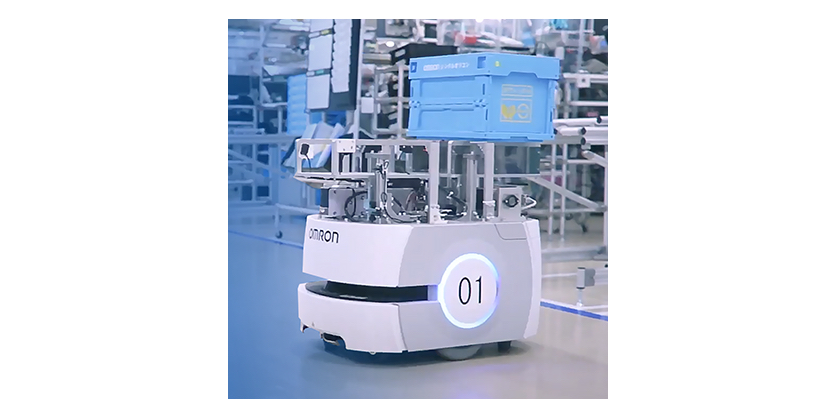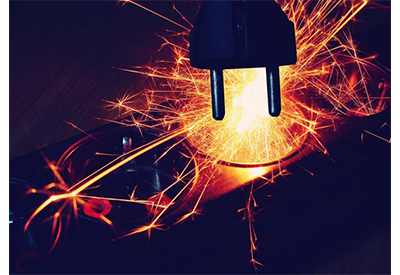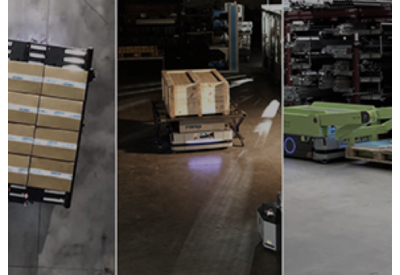Transforming Manufacturing Processes with AMRs: Boosting Efficiency and Adaptability
October 2, 2023

In today’s rapidly evolving business landscape, companies are constantly seeking innovative active solutions to optimize their manufacturing processes. One technology that has gained significant traction is the implementation of Autonomous Mobile Robots (AMRs). These versatile machines offer a wide range of benefits, empowering companies to transform their manufacturing operations and stay ahead of the competition. In this blog post, Omron explores the ways in which AMRs can revolutionize manufacturing processes, enhance efficiency, and foster adaptability.
Streamlined Material Handling
Traditionally, material handling has been a labor-intensive and time-consuming process. However, Autonomous Mobile Robots can revolutionize this aspect by autonomously transporting materials, components, and finished products within the facility. Equipped with sensors and advanced navigation capabilities, AMRs can efficiently navigate through the workspace, reducing the reliance on manual labor and minimizing the risk of errors or accidents. This automation leads to faster material movement, streamlined workflows, and improved overall efficiency.
Flexible and Agile Production
One of the key advantages of Autonomous Mobile Robots lies in their adaptability. Manufacturing processes often require frequent changes, reconfigurations, or repositioning of equipment and materials. AMRs can quickly and easily adapt to these changing requirements. They can be programmed to perform various tasks, such as assembly line support, machine tending, quality control inspections, or inventory management. With the ability to handle multiple functions, AMRs enable manufacturers to achieve greater flexibility and agility in their operations, allowing them to respond swiftly to market demands.
Improved Safety and Ergonomics
Worker safety is of paramount importance in any manufacturing environment. By deploying Autonomous Mobile Robots for repetitive or physically demanding tasks, companies can minimize the risk of work-related injuries and accidents. AMRs can handle tasks such as lifting heavy objects, transporting hazardous materials, or navigating through challenging environments. This not only ensures a safer workplace but also enhances employee satisfaction and productivity by reducing the physical strain associated with such tasks.
Enhanced Inventory Management
Maintaining accurate inventory records and optimizing stock levels is crucial for efficient manufacturing processes. AMRs equipped with RFID technology or barcode scanners can autonomously perform inventory checks, monitor stock levels, and even execute replenishment tasks. These robots can navigate through storage areas, identify, and locate specific items, and update inventory systems in real-time. By automating these processes, companies can reduce inventory errors, minimize stockouts, and improve overall supply chain management.
Data-Driven Decision Making
Autonomous Mobile Robots generate a wealth of data as they operate within manufacturing environments. By leveraging this data, companies can gain valuable insights into their operations, identify bottlenecks, and optimize processes. For instance, analysis of AMR movement patterns and efficiency can help in redesigning production layouts or identifying areas for improvement. Additionally, the integration of AMRs with existing manufacturing systems, such as Enterprise Resource Planning (ERP) or Manufacturing Execution Systems (MES), allows for seamless data exchange and facilitates efficient data-driven decision-making.
The implementation of Autonomous Mobile Robots (AMRs) holds tremendous potential for transforming manufacturing processes. From streamlining material handling and enabling flexible production to enhancing safety and empowering data-driven decision-making, AMRs offer a range of benefits that can drive operational efficiency, reduce costs, and improve overall productivity. As companies embrace automation and seek innovative solutions, AMRs emerge as a valuable tool in their quest for competitiveness in an ever-evolving marketplace. By harnessing the power of AMRs, manufacturers can optimize their processes, stay ahead of the curve, and adapt to the dynamic demands of the industry. Our team of AMR experts are ready to transform your material transport processes.
More Information
Omron’s portfolio of AMRs
Related Story
Omron’s Robotic Solutions: Thousands of Possibilities
Robots can improve the productivity of many industries and processes. They can handle a variety of tasks, such as laborious or repetitive work, and can dramatically improve processes in industries such as machine tending, assembly, packaging, and other manufacturing activities. Moreover, they can handle routine operations, allowing employees to perform higher-value tasks.
This article will look at a selection of Omron’s robots and robotic solutions, such as autonomous robots and collaborative robots, and will explore how these products can be integrated into facilities to improve productivity. It also discusses the next evolution in factory automation: MoMa’s, or Mobile Manipulators – the growing trend of having collaborative robots mounted onto AMRs to achieve new levels of automation.



